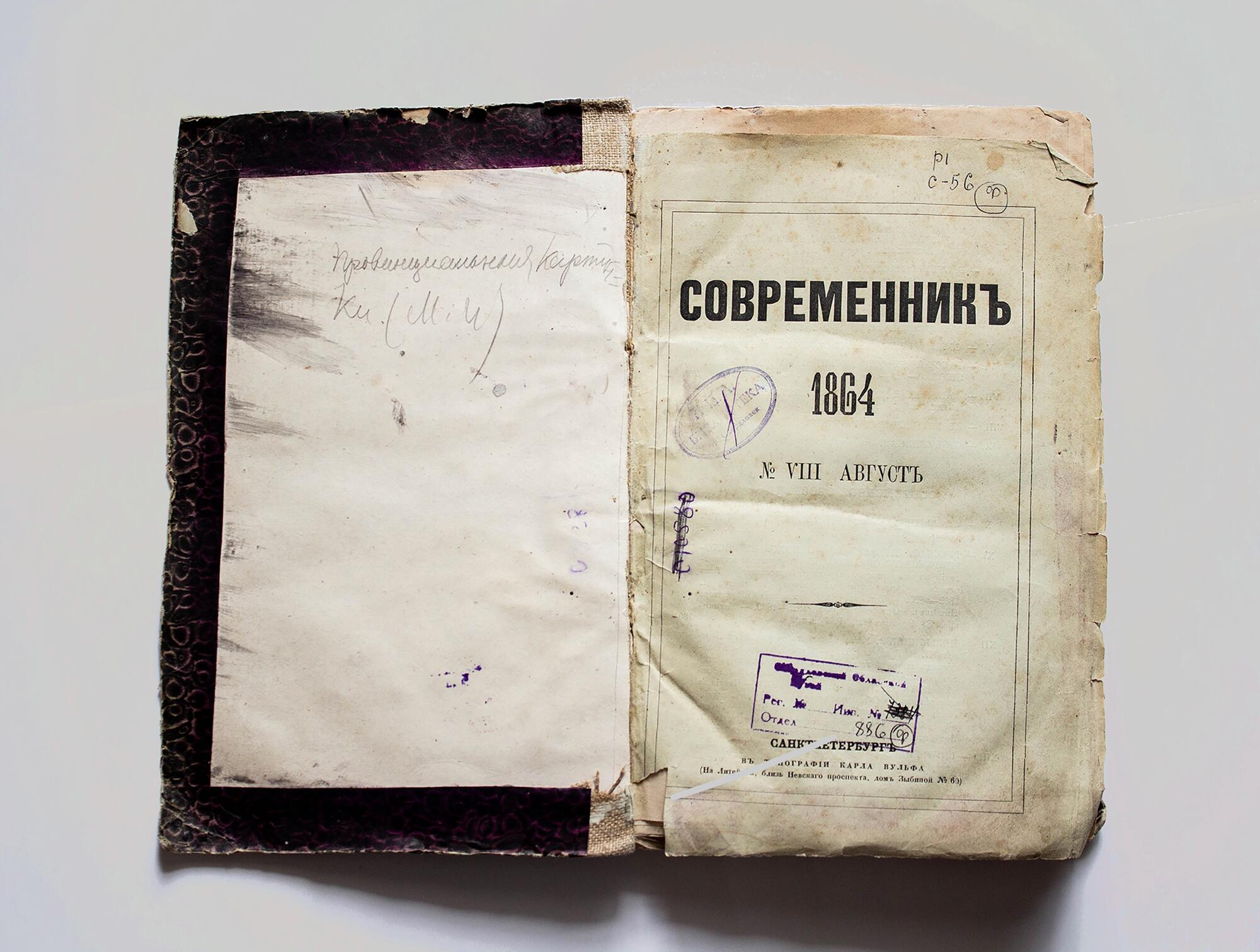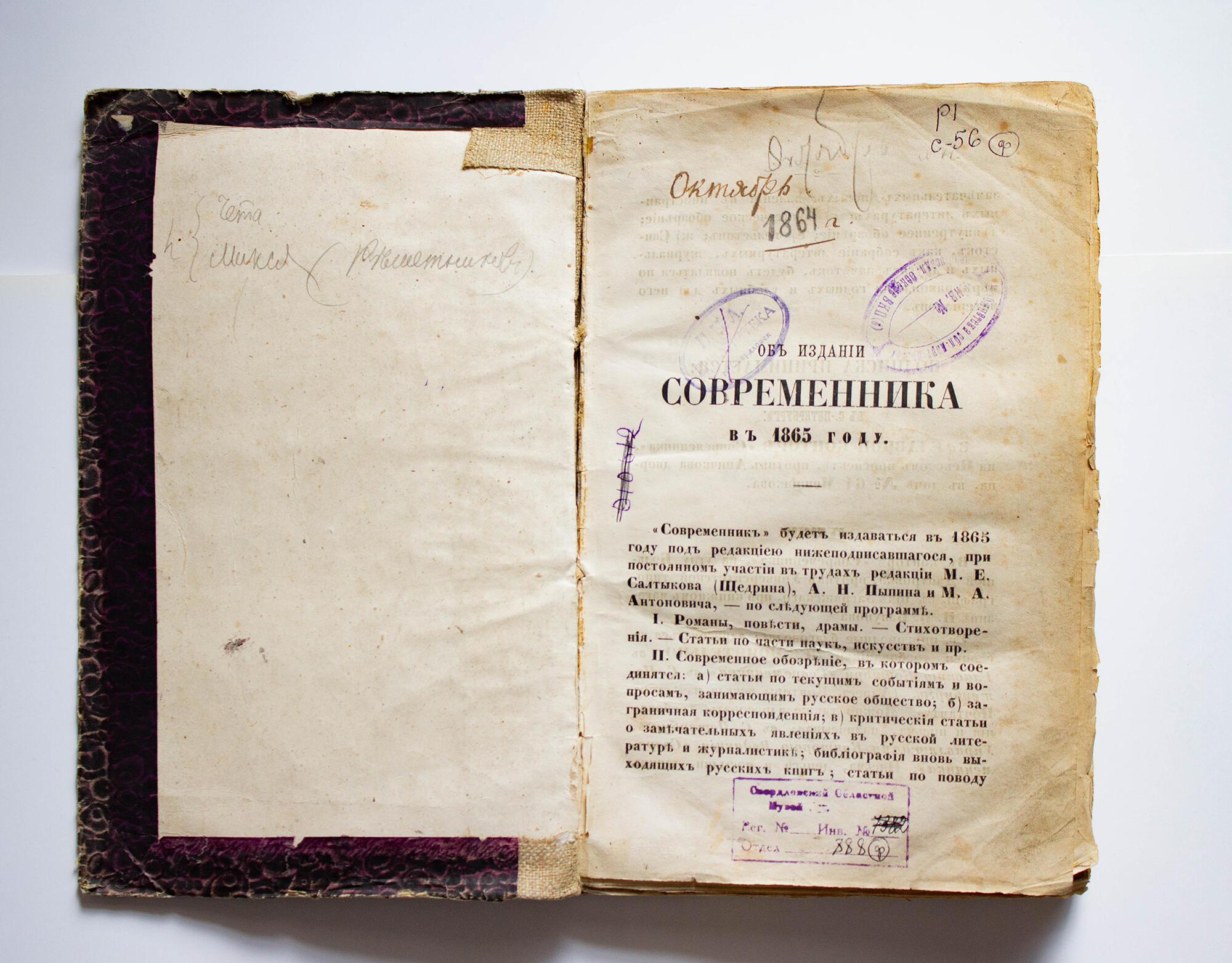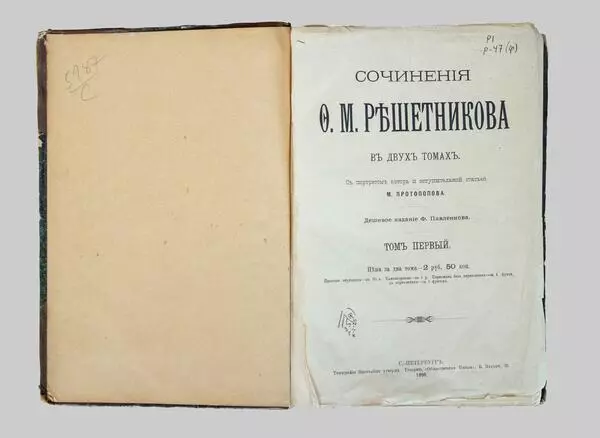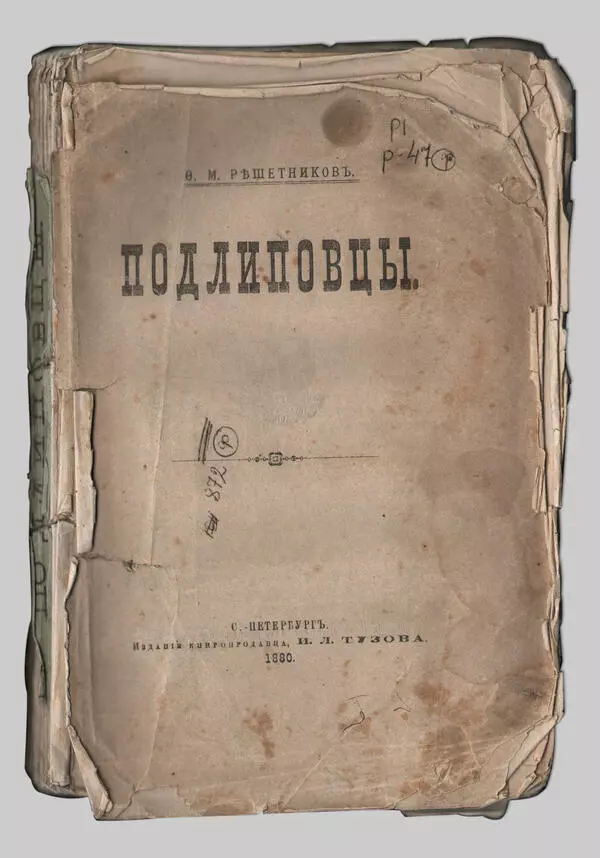The study features an issue of the Sovremennik (Contemporary) magazine that ran a story by the 19th-century Urals writer Fyodor Reshetnikov, titled ‘Maksya’. In 1869, the piece was published in the first edition of the writer’s collected works. It was part of the “Forgotten People” series.
The story follows a slew of challenges Maksim Maksimov (Maksya) had to go through. Maksya (a diminutive of Maksim) was an unwanted child who sustained repeated beatings from his alcoholic father. He was orphaned at an early age: his father died, and his mother “retired to a peaceful life in a convent”. Maksya spent six years studying at a bursa, a 19th-century spiritual education institution. During that stint, he patiently endured the bullying from his comrades, avoided arguments, “became even dumber, sleepier, weepier, and could not comprehend anything correctly”. The protagonist’s personality betrays Reshetnikov himself. According to archivist Grigory Desyatov, during his studies, Reshetnikov was ‘sullen, uncommunicative, and alienated from everything and everyone <…> he always looked like an outcast <…> had no friendships, though he rarely picked arguments’ .
Later, Maksya got a job as a postman. Shortly after he was hired, he found out the employees lived in cramped quarters, in a tiny post office with many partitions. ‘From his very first day on the job, Maksya was struck by the postal environment. He saw such a disorder in the postmen’s families, which he had never seen among urban housewives; women’s binge-drinking, their rows, fights, and indecency toward men had him confounded’.
At first, Maksya realized the monotony of his work; then he began to get annoyed by the unlikelihood of change and stopped obeying his superiors. Toward the end of his postal errands, ‘he was sick of riding <…> he was sick of bumps, suitcases, frosts’. Maksya ended up fired, but that was not exactly the end of the story. Eventually, the protagonist got a job as a clerk. The author clearly favors his character. He seems to side with him through third-party opinions: ‘Maksya is loved both by passers-by and coachmen; he gets along with everyone and knows how to satisfy everyone’. The story ends with a cliffhanger: ‘What will happen to Maksya later — of that, I have no idea, and I will leave it to the others to figure it out’.
Maksya is Reshetnikov’s typical character: “forgotten”, underestimated, withdrawn, and touchy. To an extent, the character’s personality echoes that of the author himself.
The story follows a slew of challenges Maksim Maksimov (Maksya) had to go through. Maksya (a diminutive of Maksim) was an unwanted child who sustained repeated beatings from his alcoholic father. He was orphaned at an early age: his father died, and his mother “retired to a peaceful life in a convent”. Maksya spent six years studying at a bursa, a 19th-century spiritual education institution. During that stint, he patiently endured the bullying from his comrades, avoided arguments, “became even dumber, sleepier, weepier, and could not comprehend anything correctly”. The protagonist’s personality betrays Reshetnikov himself. According to archivist Grigory Desyatov, during his studies, Reshetnikov was ‘sullen, uncommunicative, and alienated from everything and everyone <…> he always looked like an outcast <…> had no friendships, though he rarely picked arguments’ .
Later, Maksya got a job as a postman. Shortly after he was hired, he found out the employees lived in cramped quarters, in a tiny post office with many partitions. ‘From his very first day on the job, Maksya was struck by the postal environment. He saw such a disorder in the postmen’s families, which he had never seen among urban housewives; women’s binge-drinking, their rows, fights, and indecency toward men had him confounded’.
At first, Maksya realized the monotony of his work; then he began to get annoyed by the unlikelihood of change and stopped obeying his superiors. Toward the end of his postal errands, ‘he was sick of riding <…> he was sick of bumps, suitcases, frosts’. Maksya ended up fired, but that was not exactly the end of the story. Eventually, the protagonist got a job as a clerk. The author clearly favors his character. He seems to side with him through third-party opinions: ‘Maksya is loved both by passers-by and coachmen; he gets along with everyone and knows how to satisfy everyone’. The story ends with a cliffhanger: ‘What will happen to Maksya later — of that, I have no idea, and I will leave it to the others to figure it out’.
Maksya is Reshetnikov’s typical character: “forgotten”, underestimated, withdrawn, and touchy. To an extent, the character’s personality echoes that of the author himself.








